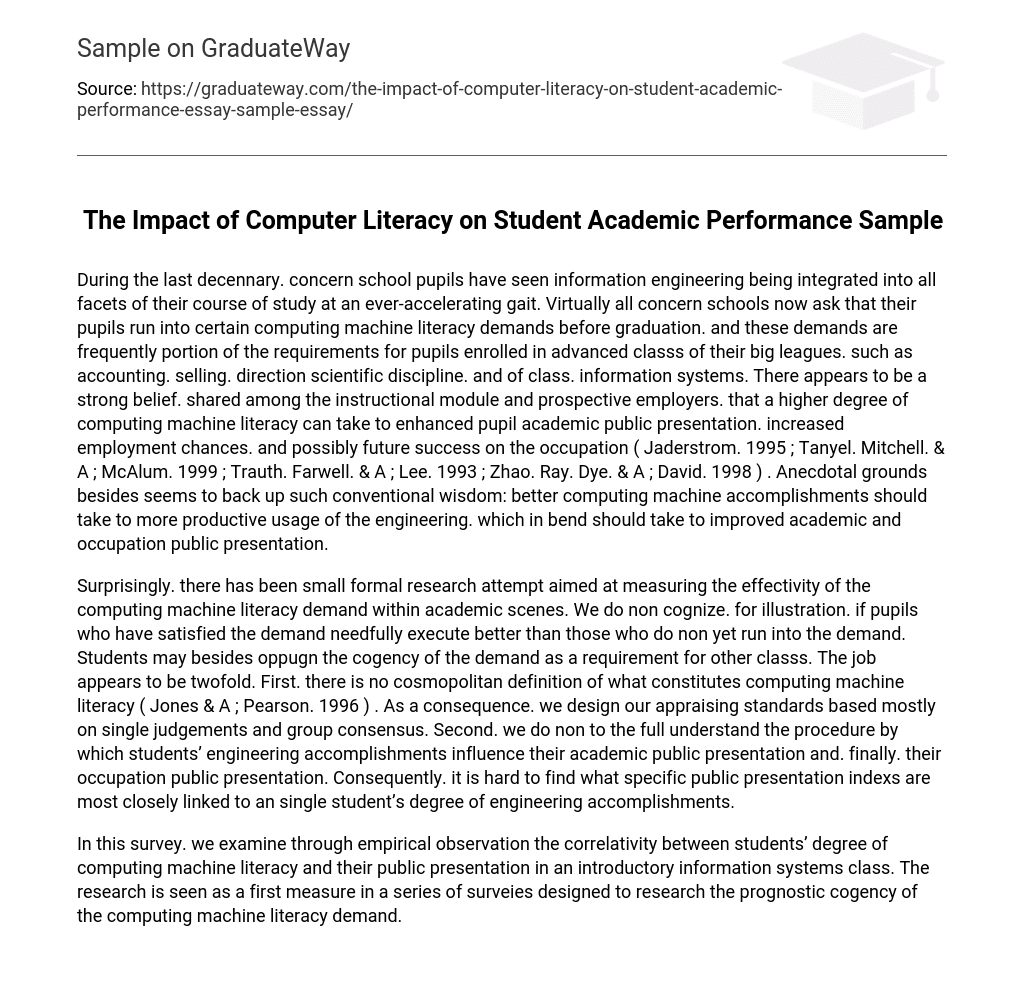During the last decennary. concern school pupils have seen information engineering being integrated into all facets of their course of study at an ever-accelerating gait. Virtually all concern schools now ask that their pupils run into certain computing machine literacy demands before graduation. and these demands are frequently portion of the requirements for pupils enrolled in advanced classs of their big leagues. such as accounting. selling. direction scientific discipline. and of class. information systems. There appears to be a strong belief. shared among the instructional module and prospective employers. that a higher degree of computing machine literacy can take to enhanced pupil academic public presentation. increased employment chances. and possibly future success on the occupation ( Jaderstrom. 1995 ; Tanyel. Mitchell. & A ; McAlum. 1999 ; Trauth. Farwell. & A ; Lee. 1993 ; Zhao. Ray. Dye. & A ; David. 1998 ) . Anecdotal grounds besides seems to back up such conventional wisdom: better computing machine accomplishments should take to more productive usage of the engineering. which in bend should take to improved academic and occupation public presentation.
Surprisingly. there has been small formal research attempt aimed at measuring the effectivity of the computing machine literacy demand within academic scenes. We do non cognize. for illustration. if pupils who have satisfied the demand needfully execute better than those who do non yet run into the demand. Students may besides oppugn the cogency of the demand as a requirement for other classs. The job appears to be twofold. First. there is no cosmopolitan definition of what constitutes computing machine literacy ( Jones & A ; Pearson. 1996 ) . As a consequence. we design our appraising standards based mostly on single judgements and group consensus. Second. we do non to the full understand the procedure by which students’ engineering accomplishments influence their academic public presentation and. finally. their occupation public presentation. Consequently. it is hard to find what specific public presentation indexs are most closely linked to an single student’s degree of engineering accomplishments.
In this survey. we examine through empirical observation the correlativity between students’ degree of computing machine literacy and their public presentation in an introductory information systems class. The research is seen as a first measure in a series of surveies designed to research the prognostic cogency of the computing machine literacy demand.





